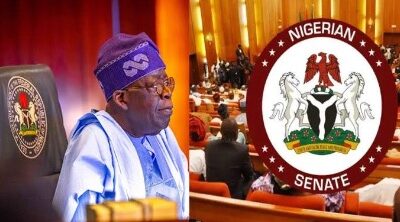Business
Petrol price increases nationwide
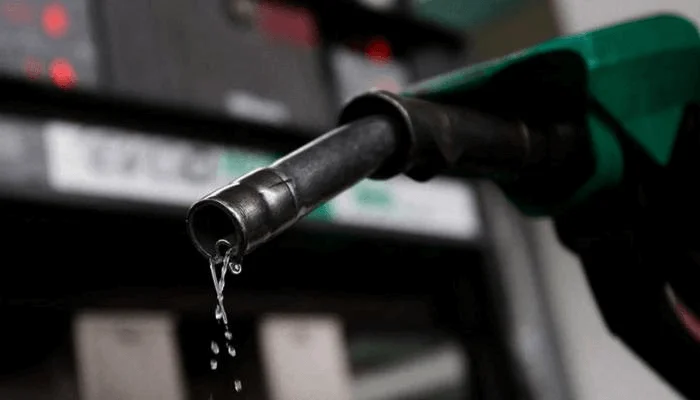
Petrol prices across Nigeria have increased to between N1,050 and N1,150 per litre.
This increase follows a price adjustment by Dangote Refinery, which raised its rates from N899 to N955 per litre for bulk purchases.
Private depots nationwide have also raised their prices, with some locations now charging over N1,000 per litre for Premium Motor Spirit (PMS).
Oil marketers explained that the hike is primarily due to rising crude oil prices, which recently climbed to $81.84 per barrel, the highest in 2025.
Deregulation of the petroleum sector and logistics costs have further contributed to the price surge.
Areas far from depots, such as the hinterlands, are experiencing the steepest prices, with some regions reporting costs of up to N1,150 per litre.
Private depots in Lagos and Calabar have also adjusted their loading costs.
For instance, Sahara and Pinnacle depots raised prices to N970 per litre, while Rainoil and Alkanes in Calabar now charge N1,000 per litre.
Retail stations are adding logistics and regulatory charges to their prices, pushing the pump rates higher for consumers.
Marketers predict that prices will continue to rise due to the global increase in crude oil costs.
With deregulation in place, the industry relies on demand and supply dynamics, making fluctuations inevitable.
Experts warn that this trend will significantly impact consumers and businesses across the country.
Business
IMO OPENS NEW ECONOMIC FRONTIER AS UZODIMMA COMMISSIONS NOVA BANK REGIONAL OFFICE IN OWERRI.
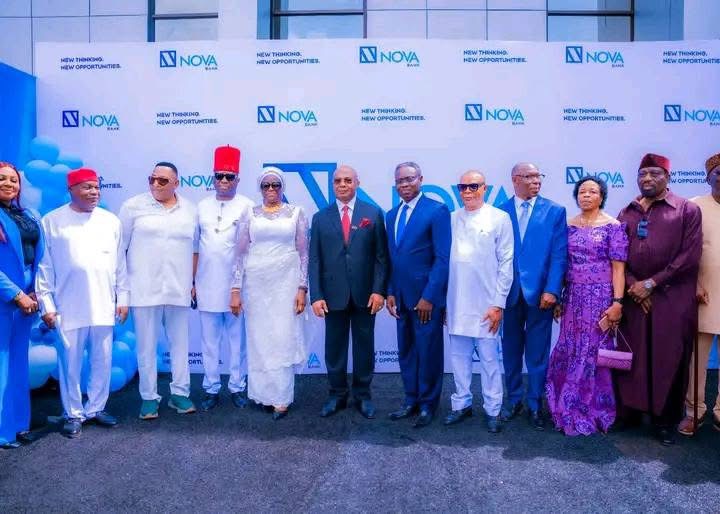
By Prince Uwalaka Chimaroke
16- DEC- 2025
Imo State took another decisive step toward economic expansion on Monday, December 15, 2025, as Governor Hope Uzodimma formally inaugurated the regional headquarters of Nova Bank in Owerri, signalling the state’s growing appeal as an investment destination.
While addressing guests at the commissioning ceremony, the governor noted that deliberate reforms, sustained infrastructural development, and a more business-friendly policy environment have steadily repositioned Imo State to attract credible investors. He described Nova Bank’s choice of Owerri as a strategic endorsement of the state’s economic viability and long-term growth prospects.
Governor Uzodimma praised the Chairman of Nova Bank, Mr. Philip Oduozor, for his experience and leadership within the financial sector, assuring the institution of continued government collaboration. He added that the arrival of Nova Bank, alongside the recent establishment of Access Bank’s regional headquarters in the state, reflects increasing confidence by the private sector in Imo’s economic direction.
Reiterating his administration’s vision, the governor emphasized ongoing efforts to transition Imo from a largely leisure-based economy into a competitive commercial centre. He pointed to significant investments in road networks, security architecture, digital systems, power supply, and overall ease of doing business, while encouraging Nova Bank to expand its footprint in the state, including consideration of Owerri for its corporate headquarters.
In his remarks, Mr. Oduozor explained that Nova Bank, which began operations in 2018 as a merchant bank, has now secured a full commercial banking licence. He stated that the bank intends to play a critical role in financing small and medium-scale enterprises across Imo State and the wider South East region by improving access to credit.
The commissioning ceremony ended with a guided inspection of the new facilities by Governor Uzodimma and top executives of the bank, marking another milestone in Imo State’s economic transformation drive.
Business
Aliko Dangote Reacts to Reports that Donald Trump Is Unhappy With the Launch Of Dangote Refinery (Video)
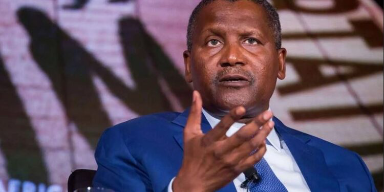
Alhaji Aliko Dangote, President of Dangote Refinery, has denied claims that U.S. President Donald Trump is displeased with the launch of the $20 billion refinery.
There were claims on social media suggesting that Trump’s recent threat to attack certain locations in Nigeria could be linked to Africa’s largest refinery.
Trump had threatened to strike terrorists targeting Christians at various locations in Nigeria, which led to the spread of various propaganda and social media reactions.
Addressing the press, Dangote said that the USA has been a major supplier of crude to the refinery, adding that the talk about Trump being angry over its establishment “does not hold water.”
“The US has been one of our major suppliers of crude, which is why when someone says Trump is not happy with our refinery, it’s not true,” he said.
“Trump is more than happy with our refinery, because on average for a year, we do not buy more than 100 million barrels from the US.”
Dangote also said Nigerians now have the option of buying high-quality, locally refined petrol at a cheaper price or opting for blended imported fuel at a higher cost.
Dangote stated that fuel importers could continue to incur losses while Nigerians enjoy more affordable petrol prices.
According to him, the availability of locally refined petrol gives consumers a clear choice between quality fuel sold at a lower rate and blended premium motor spirit (PMS) sold at higher prices by importers.
https://www.instagram.com/reel/DSR-Ew5glpI/?igsh=MWxwYWJxcXhoYm51MQ==
Business
CBN returns to S4 platform for N365 billion T-Bills Auction
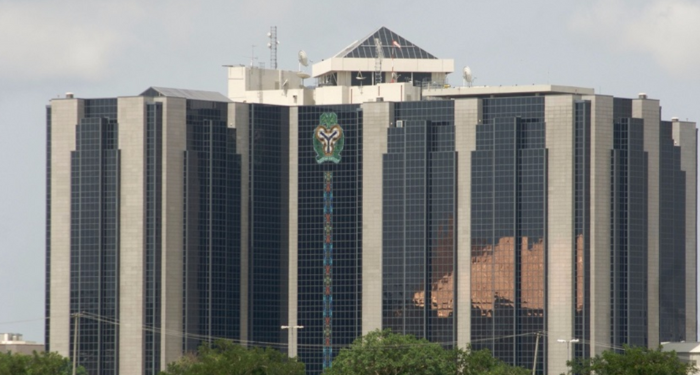
The Central Bank of Nigeria (CBN) has reverted to the use of its Scruples Securities Settlement System (S4) for the electronic submission of Treasury Bills auction bids, following a brief suspension after its initial test-run in November.
Ekwutosblog understands the system was suspended following a glitch, which has now been resolved.
The latest move comes ahead of a N365 billion Treasury Bills auction scheduled for Thursday, December 17 – 18, 2025, reinforcing the apex bank’s resolve to tighten controls, enhance transparency and improve price discovery in the primary fixed income market.
The bids are to be submitted on Wednesday, December 17, 2025, while successful bidders will be required to settle their obligations on Thursday, December 18.
Market participants see the decision as a signal that the CBN is pressing ahead with reforms despite earlier operational inconsistencies. According to Mr. Tajudeen Olayinka, CEO of Wyoming Capital Partners, the move signals a renewed push for transparency in primary market auctions as the apex bank advances fixed income reforms.
Auction Details: N365 billion across three tenors
According to auction guidelines issued last weekend, the CBN will offer a total of N365 billion across three short-dated tenors:
- 91-day bills: N100 billion
- 182-day bills: N100 billion
- 364-day bills: N165 billion
The auction will be conducted using the Dutch auction system, with bids to be submitted exclusively via the S4 web interface between 8:00 a.m. and 11:00 a.m. on Wednesday, December 17, 2025.
Each bid must be made in multiples of N1,000, subject to a minimum subscription of N50.001 million, while successful bidders are required to settle by 11:00 a.m. on Thursday, December 18.
Second attempt after November test-run
This December auction marks the second activation of mandatory S4 usage, following the first implementation at the November 20, 2025 Treasury Bills auction, when the CBN raised over N700 billion.
Although the S4 system was briefly suspended in subsequent issuances—where bids were routed through Money Market Dealers (MMDs)—sources close to the apex bank said the pause reflected a work-in-progress transition, not a policy reversal.
Nairametrics gathered that the CBN expects to conclude the reform process before year-end, after which S4 will become fully operational for all government securities.
CBN seeks visibility, not market takeover
Speaking at a Premium Times Academy workshop in Lagos recently, Mr. Zeal Akariwe, CEO of Graeme Blaque Advisory, said the CBN’s objective is real-time visibility, not a takeover of the control of the fixed income market.
“Did CBN take over? No. What the CBN wants is transparency and visibility over the market, not takeover. That visibility did not exist,” Akariwe said.
Akariwe, whose firm provides advisory services to CBN, stressed that the Securities and Exchange Commission (SEC) remains the statutory regulator, while the CBN’s actions are corrective measures to address structural weaknesses in the market.
Why transparency matters to CBN
Akariwe highlighted how loopholes in the old system enabled profit concealment. He cited cases where banks and pension funds routed bond trades through brokers to hide gains from regulators.
In one illustration, Akariwe said a pension fund holding a 10% coupon bond bought at N100 could sell via an intermediary at N120, allowing the N20 profit to be shared discreetly among parties without regulatory visibility. “The CBN says we can’t have this where we cannot see it,” he noted.
Concerns had earlier emerged over inconsistent use of issuance platforms, with some auctions conducted via S4 and others through MMDs. Akariwe acknowledged this but described it as part of a transition phase.
Beyond auctions, the S4 rollout aligns with Governor Olayemi Cardoso’s broader reform agenda, spanning financial markets, banking supervision, compliance, and FX reforms, aimed at embedding transparency-driven systems that outlast the current administration.
With the return to S4 for the December auction, the CBN appears set to make electronic bidding the new normal in Nigeria’s government securities market.
-
Business1 year ago
US court acquits Air Peace boss, slams Mayfield $4000 fine
-

 Trending1 year ago
Trending1 year agoNYA demands release of ‘abducted’ Imo chairman, preaches good governance
-

 Politics1 year ago
Politics1 year agoMexico’s new president causes concern just weeks before the US elections
-

 Politics1 year ago
Politics1 year agoPutin invites 20 world leaders
-

 Politics1 year ago
Politics1 year agoRussia bans imports of agro-products from Kazakhstan after refusal to join BRICS
-
Entertainment1 year ago
Bobrisky falls ill in police custody, rushed to hospital
-
Entertainment1 year ago
Bobrisky transferred from Immigration to FCID, spends night behind bars
-
Education1 year ago
GOVERNOR FUBARA APPOINTS COUNCIL MEMBERS FOR KEN SARO-WIWA POLYTECHNIC BORI











